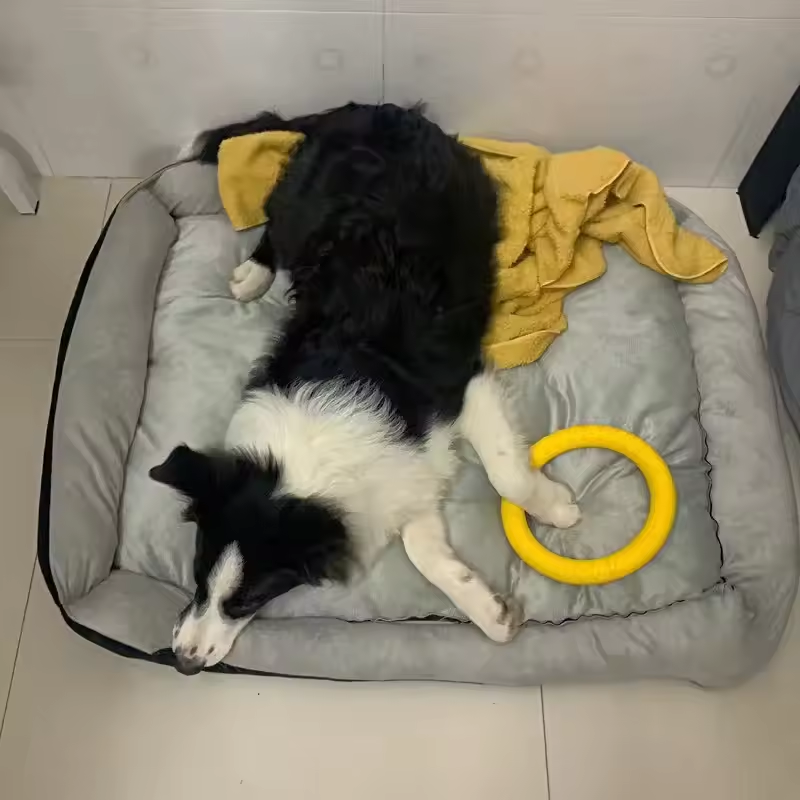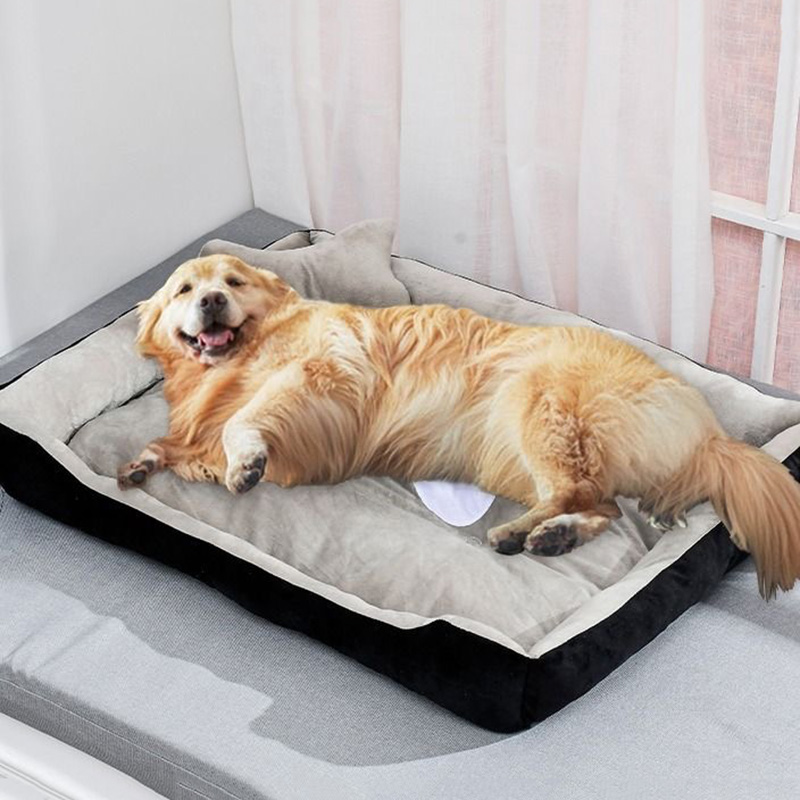Introduction to Kennel Cough
Kennel cough contagious, also known as canine infectious tracheobronchitis, is a common, highly contagious respiratory disease in dogs. It’s characterized by dry, hacking coughs and can easily spread in places with many dogs, like kennels and dog parks.

What is Kennel Cough?
Kennel cough is an upper respiratory infection that affects dogs. It’s caused by various bacteria and viruses. It manifests as a persistent cough, often sounding like a goose’s honk.
How Do Dogs Contract Kennel Cough?
Dogs can get kennel cough by inhaling infectious particles. This can happen when they interact with infected dogs or come in contact with contaminated objects like toys or bowls.
Can Kennel Cough Spread to Humans and Other Pets?
While primarily a canine disease, kennel cough can, in rare cases, spread to humans, especially those with weakened immune systems. It can also affect other household pets, such as cats.
Recognizing the Symptoms
Recognizing the symptoms of kennel cough is crucial for early intervention and treatment. This section outlines typical signs observable in dogs and potential indicators that humans may experience.
Typical Signs in Dogs
Dogs infected with kennel cough exhibit distinct symptoms making it easier to identify:
- Persistent dry, hacking cough often described as a goose honk.
- Sneezing and runny nose, signs of respiratory distress.
- Eye discharge, which could manifest as increased eye mucus or watering.
- Reduced appetite and lower energy levels, which reflect the dog’s discomfort.
These symptoms, particularly the unique cough, are key indicators of kennel cough and should prompt a consultation with a veterinarian.
Potential Signs in Humans
While rare, kennel cough can affect humans, especially those with compromised immune systems. Symptoms in humans can include:
- Persistent cough that may sound dry, similar to whooping cough.
- Sore throat and difficulty swallowing, indicative of respiratory tract inflammation.
- Difficulty breathing, which could escalate to more severe conditions like pneumonia in vulnerable individuals.
Human cases are uncommon and usually involve specific strains of bacteria that are transmissible from dogs to humans. If you exhibit these symptoms and have been in close contact with a dog diagnosed with kennel cough, consulting a healthcare provider is recommended.
Transmission and Risk Factors
Understanding how kennel cough spreads and the factors that increase a dog’s risk of infection is vital for prevention.
Places Where Dogs are Susceptible
Dogs are most at risk of contracting kennel cough in areas where they come into close contact with many other dogs. This includes:
- Dog parks, where dogs play and interact freely.
- Kennels and shelters, often with tight quarters and many animals.
- Veterinary offices, especially in waiting rooms.
- Grooming salons, where equipment may be shared.
- Dog shows and events, where dogs from different backgrounds gather.
These places have higher disease transmission risks due to the concentration of dogs and the likelihood of exposure to infected individuals.

Factors Increasing Kennel Cough Risk
Several factors can make dogs more prone to catching kennel cough. These factors include:
- Not being vaccinated against common kennel cough agents.
- Stressful conditions, which can weaken the immune system.
- Poor ventilation in living or sleeping quarters, allowing virus-laden air to circulate.
- Exposure to significant changes in temperature or to irritants like cigarette smoke or dust.
- Young age or old age, where immune defense mechanisms are not as strong.
- Pre-existing health conditions that already challenge a dog’s immune system.
Dogs with these risk factors are more susceptible to kennel cough and may experience more severe symptoms or complications. Preventive measures, such as vaccination and minimizing stress, are essential in these cases.
Diagnosing Kennel Cough
To get an accurate diagnosis of kennel cough, it’s essential to consult a veterinarian. They’ll listen to your dog’s cough and consider their history, including recent exposure to other dogs. While there’s no lab test that specifically pinpoints kennel cough, tests like blood work and chest x-rays can rule out other illnesses. These tests can also identify any secondary infections, such as pneumonia, which can complicate the cough.
Veterinary Diagnosis and Tests
Veterinarians typically rely on a dog’s symptoms and exposure history for a kennel cough diagnosis. Blood tests and x-rays can help rule out more serious diseases. For outbreaks in kennels or shelters, swabs for PCR tests can identify the causative agent. This helps in choosing the right treatment and control measures. Some vets might also perform a physical examination, checking for signs of respiratory distress or nasal discharge.
Symptoms Versus Diagnosis
Symptoms like a honking cough and runny nose suggest kennel cough but are not a diagnosis. Only a vet can confirm kennel cough and rule out conditions with similar symptoms. It’s important not to confuse symptoms with an actual diagnosis. For instance, a dog may cough for reasons other than kennel cough, such as heart disease. A vet visit ensures proper identification and treatment of the cough’s cause.
Treatment Options
When your dog is diagnosed with kennel cough, understanding treatment options becomes crucial.
Uncomplicated Cases in Dogs
For mild kennel cough, often no treatment is necessary. Rest, hydration, and good nutrition can support recovery within a few weeks. A humidifier can also help ease breathing.
When to Use Antibiotics
Antibiotics are not normally needed for kennel cough. They’re used when a secondary bacterial infection is present. Your vet will decide if they’re necessary.
Supportive Care for Dogs
Besides rest, certain measures can help your dog feel better. These include using a harness instead of a collar and possibly cough suppressants, as recommended by your vet.
Guidelines for Treating Humans
Kennel cough is rarely passed to humans. If it happens, those with weak immune systems are at risk. Medical advice and possibly antibiotics are needed in these cases.

Prevention and Management
Preventing kennel cough involves several steps to ensure the health and safety of dogs.
Vaccinations for Dogs
Vaccines play a crucial role in preventing kennel cough. Veterinarians often recommend the Bordetella vaccine, especially for dogs that frequent kennels, dog parks, or any group setting. It’s important to keep up with vaccinations as they help reduce the severity and duration of the disease if contracted. However, no vaccine guarantees 100% protection, since the disease can be caused by various pathogens.
Isolation and Quarantine Practices
If a dog contracts kennel cough, isolation is necessary to prevent spreading it to other dogs. Keep the infected dog away from other pets and avoid places where dogs congregate. This includes dog parks and daycare facilities. Quarantine should last until the dog is no longer contagious, typically about 10-14 days.
Environmental Factors and Pet Wellness
Maintaining a clean and stress-free environment is essential in preventing kennel cough. Ensure living spaces are well-ventilated and free from irritants such as smoke and dust. Regular cleaning of toys, bowls, and bedding can also minimize the risk. Manage stress in pets by providing a comfortable resting area and avoiding overcrowded situations.
Recovery and Post-Care
After a kennel cough diagnosis, recovery and post-care are vital for your dog’s health.
Duration of Contagious Period
Dogs with kennel cough are usually contagious for about 10 to 14 days. This may shorten with antibiotic use for bacterial causes. It’s best to keep your dog isolated during this time to prevent spreading the infection to other dogs.
Home Care for Recovering Pets
To care for your dog at home, follow these steps:
- Provide a quiet and comfortable rest area.
- Keep their bedding and living space clean.
- Use a harness instead of a collar to prevent coughing from collar pressure.
- Maintain good hydration and nutrition.
- A humidifier can help to ease your dog’s breathing.
By creating a calm environment, you can help your pet recover more comfortably and quickly.
Monitoring Progress and Follow-Up
Keep tabs on your dog’s recovery by noting any changes in symptoms. A follow-up vet visit may be necessary if:
- The cough persists beyond a few weeks.
- There are signs of worsening, like difficulty breathing or loss of appetite.
Your vet may adjust treatment based on progress. Regular check-ins ensure a full recovery.
Cost and Considerations for Owners
Managing the costs of kennel cough involves understanding typical treatment expenses and making informed vaccination choices.
Typical Costs for Treatment
The cost of treating kennel cough varies. Uncomplicated cases may only need a standard vet consultation, which can be relatively affordable. However, more severe cases requiring hospitalization, antibiotics, or special treatments increase the costs significantly. Owners should prepare for these possibilities by consulting their vet early when symptoms first appear to potentially avoid more severe complications and associated costs.
Making Decisions About Vaccination
Deciding on vaccination is crucial in kennel cough prevention. Most vets recommend the Bordetella vaccine, especially if dogs frequent high-risk areas like kennels or dog parks. While no vaccine offers complete protection, they reduce the severity and duration of the illness if contracted. Discuss with your vet the most effective vaccine options for your dog, based on their health and lifestyle. This proactive step can help mitigate not only health risks but also potential treatment costs resulting from kennel cough infections.
Closing Thoughts
As we wrap up our discussion on kennel cough, it’s clear that vigilance and proactive measures are key to managing this contagious respiratory condition in dogs.
Importance of Vigilance and Vaccination
Being watchful of your dog’s health and acting quickly on symptoms can prevent serious complications related to kennel cough. Vaccines play a critical role, although they are not foolproof, they significantly mitigate the disease’s impact. Ensure your pet’s vaccinations are up to date, especially if your dog regularly interacts with other dogs. The rigorous use of vaccinations, coupled with attentive care, forms a strong defense against kennel cough contagion.
Staying Informed on Pet Health Issues
Staying informed on pet health is an ongoing responsibility for every dog owner. Knowledge of diseases like kennel cough empowers you to make informed decisions about your pet’s care. Regular vet check-ups and staying abreast of local health alerts can be vital in safeguarding your furry friend’s well-being. As kennel cough is contagious, understanding this ailment and knowing the strategies for prevention and treatment will ensure your dog remains healthy and happy.